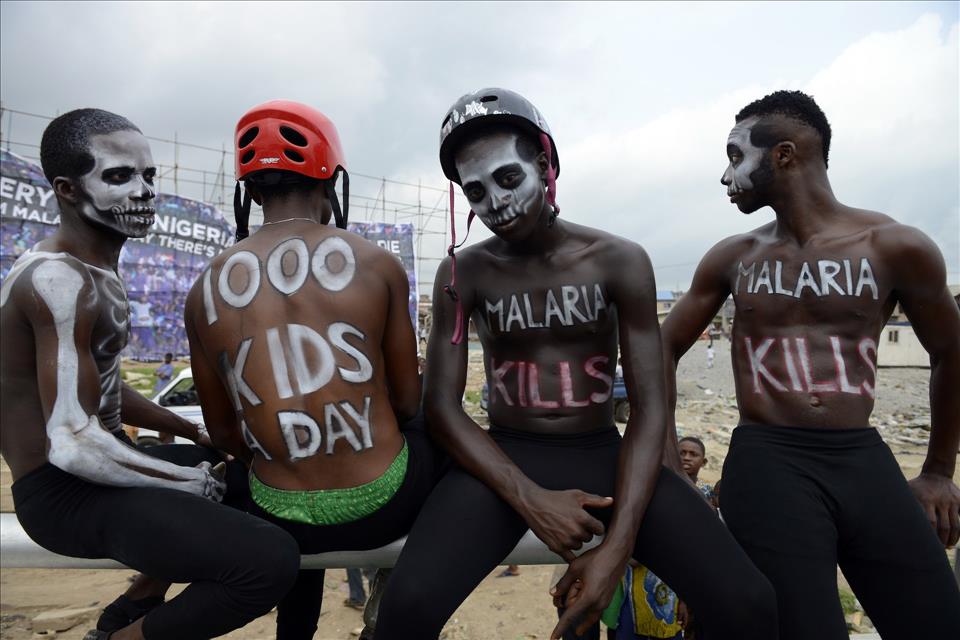(MENAFN- The Conversation) malaria is a major public health problem and can be life-threatening. The disease, mostly found in tropical countries, is transmitted to humans by the female _Anopheles mosquitoes. Nearly half of the world's population was at risk of the disease. in 2021 , for instance, around 247 million cases of malaria were reported and about 619,000 people died. four african countries accounted for just over half of all malaria deaths worldwide: Nigeria (31.3%), the Democratic Republic of the Congo (12.6%), Tanzania (4.1%) and Niger (3.9%)._
prof. dr. olugbenga a. mokuolu currently oversees all malaria work in Nigeria for Management Sciences for Health, a global health advisory organisation. He's also the former technical director to the National Malaria Elimination Programme in Nigeria. Molecular parasitology Professor, Segun Isaac Oyedeji, spoke to him about Nigeria's malaria burden.
Segun Oyedeji: Nigeria has a high malaria burden. How did it get here?
Olugbenga Mokuolu: It's a combination of many things.
The existence of malaria anywhere is an interaction between the environment and the organism responsible for the disease. Mosquitoes breed by laying their eggs in stagnant water. When you look at an environment, you're looking at natural factors such as the temperature and humidity. It also includes man-made factors such as blocked drainage systems.
In terms of humidity, Nigeria has a vegetation that favours the reproductive stages of the parasite in the mosquito which serves as a vector. altitude also plays a role . In most of Nigeria the altitude allows the mosquito to fly around without much difficulty. It's only the mambilla plateau , in Taraba State, northeastern Nigeria, that's considered relatively malaria free in Nigeria. It has an altitude that is above 5000 feet. This makes it difficult for mosquitoes to inhabit.
In terms of environmental management, Nigeria leaves a lot to be desired. The country has open refuse sites, blocked drainage systems, and several containers at home that people use for water storage because they don't have a guaranteed system of pipe borne water that is running. These all provide ideal sites for mosquitoes to breed.
When you combine all of these, you have an environment that is favourable for malaria vector to thrive.
Unfortunately, Nigeria also has a large population. Transmission is much easier with a large population.
That's not to say no progress has been made. The country's interventions have not been a failure altogether. My organisation is supporting Nigeria to provide preventive chemotherapy for malaria. We have reached over 25 million children under five in our intervention cycles. This is shown to have significant contribution to reduction in mortality. But we are not yet where we are supposed to be.
Segun Oyedeji: Children are disproportionately affected. What can be done?
Olugbenga Mokuolu: The Nigerian government and its partners have singled out children as the focus of most interventions. In addition, we need health system strengthening to address the gaps in access particularly at communities.
The Nigerian National Agency for Food and Drug Administration And Control recently approved the R21 malaria vaccine for use.
Hopefully when the R21 vaccine becomes available it will reduce new cases or the impact of cases. It is unclear when the vaccine may be rolled out in Nigeria.
A recent study shows that the r21 vaccine has some efficacy . This vaccines has shown most effective when administered to children from five months to 36 months old. It is 77% effective in preventing infection and reduces the occurrence of severe malaria. Reducing the frequency of severe malaria reduces the burden of malaria mortality by extension.
The vaccines won't be used on their own. They will be used as adjuncts to existing tools for fighting malaria such as preventative treatment and the distribution of bed nets.
Read more: what nigeria must do to eliminate malaria: three researchers offer insights
.
Segun Oyedeji: How can Nigeria reduce its malaria burden?
Olugbenga Mokuolu: New cases of malaria can only be curbed by environmental measures, including the use of insecticide nets and personal protection. I know the vaccines aren't 100% effective, but surely they will offer additional prevention.
But Nigeria needs to step up its game. The current national malaria strategic plan 2021 to 2025 is based on a well researched model. It is no longer business as usual. The plan clearly shows that if we don't do more, malaria will keep rising.
But we are actually doing a lot.
Take the bed nets. These are being distributed on an almost regular basis to eligible states. Even COVID-19 didn't stop the distribution. Now because of the size of Nigeria's population, bed nets are distributed in what we call mass roll out campaigns with each state doing its own campaign. The improvement in malaria control that we have seen the last five to seven years is based on the intensity of interventions in two thirds of our states.
But Nigeria has gone further to almost be a global example, in how to implement preventive chemotherapy . We have 21 states out of 36 states where we reached over 25 million under five children in each cycle of intervention. We have four cycles in the year and this has contributed to reduction in mortality.
But we could do more.
Malaria isn't going to be reduced significantly unless Nigeria intensifies development. Development plays a major role in reducing the burden.
Read more: ending malaria in africa needs to focus on poverty: quick fixes won't cut it
Also, infusion of funds and not just from the government. There is also public-private partnership for drug manufacturers. The government should give them a protected market and negotiate good prices. Let the manufacturers take over distribution using their own market principles in a manner that will be affordable to many people.
We need to look at new initiatives and also position ourselves in the vaccine game with respect to malaria.
Segun Oyedeji: How can the international community – donors and aid agencies – best support Nigeria?
Olugbenga Mokuolu: International partners are supporting the country in many ways. Largely the support is in funding and technical areas. Going forward, countries like Nigeria will need stronger support for consolidating current gains, new tools, health system strengthening, scaling up access to vaccine and local manufacturing or production of malaria intervention commodities.



















Comments
No comment